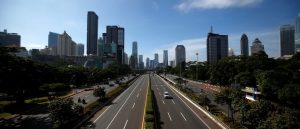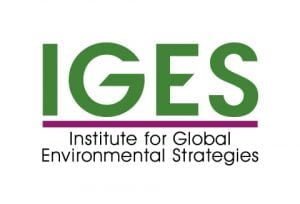According to latest statement issued by The Institute for Global Environmental Strategies (IGES) is a collaborative research and outreach organisation working to accelerate the transition to a sustainable, in the position paper the IGES : Covid-19 Implication Towards Environment and Sustainability.
On 14 May 2020, the Institute for Global Environmental Strategies (IGES) released its position paper on the spread of the new coronavirus (COVID-19) and associated global environmental challenges, based on the results of its analysis to date.
In this paper IGES identifies key issues through the lens of the environment and sustainability, and recognises that the COVID-19 pandemic is closely related to – and extends beyond – these issues, and cannot be left unaddressed.
Effective responses and recovery plans will therefore need to take into account the pandemic’s multiple dimensions, as well as its deep roots in environmental stresses and global mobility. The recovery process serves as a critical occasion to materialise much-needed transformative change toward a sustainable society. Some solutions will be needed in the immediate future while others will be important over the longer term. As such, IGES has conducted this preliminary analysis to understand the environmental and sustainability challenges associated with the crisis, and their potential solutions, by categorising core issues requiring attention in the “short-term”, “medium-term”, and “long-term”.
With the aim of contributing to the creation of a resilient and sustainable world and to help minimise pandemic risks in the future, IGES has already started and will continue to lead research on the implications of COVID-19. Working with domestic and international partners, IGES will continue to drive forward transformative change towards healthy people and a healthy planet.
The full IGES position paper is attached or can be found below:
https://www.iges.or.jp/en/pub/covid19-e/en
Abstract of the IGES Position Paper
[Fundamental Principles]
- The COVID-19 crisis was caused by a combination of harmful interactions between humans and wildlife, and the ubiquitous and accelerated movement of people and goods across borders – a feature of modern globalisation. While the former set of factors allowed for the transmission of the COVID-19 virus from animals to humans, the latter has enabled its subsequent spread to pandemic proportions.
- COVID-19 tends to have a greater effect on the elderly, and those with underlying health conditions, while poorer or marginalised segments of society are more likely to be disproportionately affected. The pandemic may therefore increase socioeconomic inequality.
- The current pandemic is already threatening to overwhelm healthcare systems and undermine political systems that find themselves ill-equipped to manage an emergency of this scale. These strains on social stability and government capacities are exacerbated by an economic crisis of greater magnitude than the 2008 financial crisis. Effective responses and recovery plans will therefore need to take into account the pandemic’s multiple dimensions as well as its deep roots in environmental stresses and global mobility.
- Pandemics like COVID-19 will occur with potentially greater frequency and graver impacts in the future.
[Short-term Measures: Addressing Urgent Concerns]
- Management of Medical Waste
Healthcare facilities have experienced an explosion in the use of specific kinds of medical supplies, including disposable masks and gloves, which has caused a rapid increase in medical waste. In collaboration with relevant UN and other organisations, IGES will begin analysing the management of medical waste in selected developing countries in Asia, identifying challenges and proposing solutions. - Managing the Adverse Impacts of Air Pollution
In locations with high levels of air pollution, the proportion of residents suffering from respiratory illnesses is high. Individuals infected with COVID-19 are thus likely to be at higher risk for serious illness and premature death. It is true that COVID-19 emergency lockdowns and stay-at-home restrictions have made ambient air quality in many Asian and other cities significantly better. Therefore, it is important to identify sustainable solutions that prevent pollution levels from rebounding or reaching higher levels after the crisis subsides. A possible important area for intervention could be the transport sector, particularly in large cities in Asia, as some urban areas have begun to promote non-motorised transport (particularly cycling and walking) and alternative working arrangements. - Uptake of Sustainable Workstyles and Lifestyles
Remote work is being rapidly introduced across the world. It is also recommended that social engagements take place by the same means, leading to substantial changes in lifestyles as well as workstyles. Such practices may improve not only the environment but also work-life balance, and should be maintained to the extent possible, even after the emergency period ends. IGES published the “1.5-Degree Lifestyles: Targets and options for reducing lifestyle carbon footprints” report in February 2019. Currently, this research is in its second phase, where it is being expanded to cover additional countries (including developing countries). The author team is also beginning to consider how to cover COVID-19’s effects on lifestyles in the research. Moreover, IGES is examining, together with partners, the possibility of promoting lifestyle changes that consider COVID-19 in some of their projects.
[Medium-term Measures: Paving the Way for Post-Crisis Green Recovery]
- Promotion of Green Recovery
It is important to take actions that build a society more adept at managing similar crises in the future, i.e. “build back better” after the crisis. Going forward, it will be important that each country’s large-scale economic measures contribute to building a more sustainable, resilient and inclusive society in the future (i.e. the implementation of a “global” Green New Deal). IGES plans to analyse the extent to which Japan’s emergency economic measures incorporate environmental measures (e.g. towards RE100). Moreover, through collaboration with various international partners, IGES is monitoring how each country’s economic recovery plan will incorporate the concept of green recovery, and is evaluating these policies.
[Long-Term Measures: Creating a Resilient and Sustainable Society]
- Sustainable and Integrated Approaches
The promotion of regional circulating and ecological spheres (Regional-CES), which aim for holistic sustainable development at the regional level through integrated efforts toward achieving diverse, social, economic and environmental targets, is also seen as a reasonable way forward in the long term. IGES is planning to launch a case study on the application of the Regional-CES concept in two regions in Asia together with a number of partner institutes. One proposed research project on Regional-CES and pandemic response may focus on understanding urban-rural interdependency patterns in the event of pandemics, focusing on resource flows, economic recovery and collective resilience. - Sound Urban Environmental Measures in Developing Countries
The urban dimension and root causes of pandemics are multiple, including the fact that essential daily activities, such as commuting and shopping, are carried out in relatively congested spaces, that cities confront all sorts of environmental challenges which are associated with unsustainable production and consumption patterns, and that cities are primary sources of environmental pollution, which worsens the pre-existing health conditions of their inhabitants. In addition, municipal waste streams in cities will experience a surge in the volume of disposables, increases in use of single-use plastic bags, containers and utensils, and disruption of normal waste management systems due to safety concerns and lockdowns. Through international cooperation, IGES, with its partners, may integrate pandemic management as part of environmental sustainability and urban resilience, and has initiated discussions on this issue with local governments in several Southeast Asian countries. - Measures for Climate Adaptation Planning
Ecosystems are changing dramatically due to climate change. These changes expand transition zones where species from different habitats interact and thereby elevate the risk of pathogen spillover. In other words, it is fully conceivable that climate change can become an indirect factor contributing to the rise in frequency of infectious diseases like COVID-19. Therefore, as illustrated by this current crisis, it is necessary to consider infectious disease risk as another important impact of climate change. IGES, in full consultation with relevant partners, could consider including infectious disease risk as one point of focus for the upcoming launch of a platform for climate change adaptation in Asia. IGES is considering a study on the implications of COVID-19 for resilience in developing countries. - Measures to Control Global Risks
It has again been proven that increasingly globalised risks such as this pandemic can result in massive socio-economic impacts, i.e. disruptions of global supply chains and the collapse of global tourism. Policies and measures, both international and domestic, are therefore considered necessary to make supply chains more sustainable and resilient. Additionally, policies and practices to promote sustainable tourism worldwide should be substantially strengthened. IGES could consider research on improved global governance to address globalised risks effectively, in collaboration with domestic and international partners.
SOURCE : IGES


